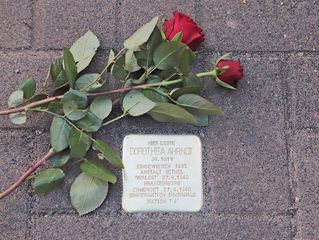What happened to the Jewish patients?

Seven people of Jewish faith or origin were transferred from Bethel to the provincial sanatorium in Wunstorf as part of a special "Aktion T4" operation. A few days later, on 27 September 1940, they were taken from there to the Brandenburg/Havel killing centre and murdered.
The background to this was a decree issued by the Reich Ministry of the Interior: Jewish patients were no longer allowed to live together with non-Jewish patients. It has only been known since historical research in the 1990s that this was a special operation as part of "Aktion T4". Regardless of the diagnosis in question and without the use of the usual registration forms and assessment procedures for "Aktion T4", this special action was aimed at the systematic extermination of Jewish institutionalised patients.
Initial research on this topic began in the late 1980s, and more detailed historical research has been available since 2007: 16 residents were affected in the Bethel and Sarepta institutions. Some were discharged by the doctors in charge in order to avoid the planned forced transfer. However, seven were deported via Wunstorf to Brandenburg/Havel and murdered. Their names are: Dorothea Ahrndt, Reinhard Beyth, Hermann Federmann, Heinrich Jansen, Olga Laubheim, Margot Reuter and Kurt Simon. The youngest of them, Hermann Federmann, was only ten years old when he was deported. Olga Laubheim had spent around 45 years, almost her entire life, in Bethel.
According to current research, most of the men and women who were released did not survive National Socialism either.